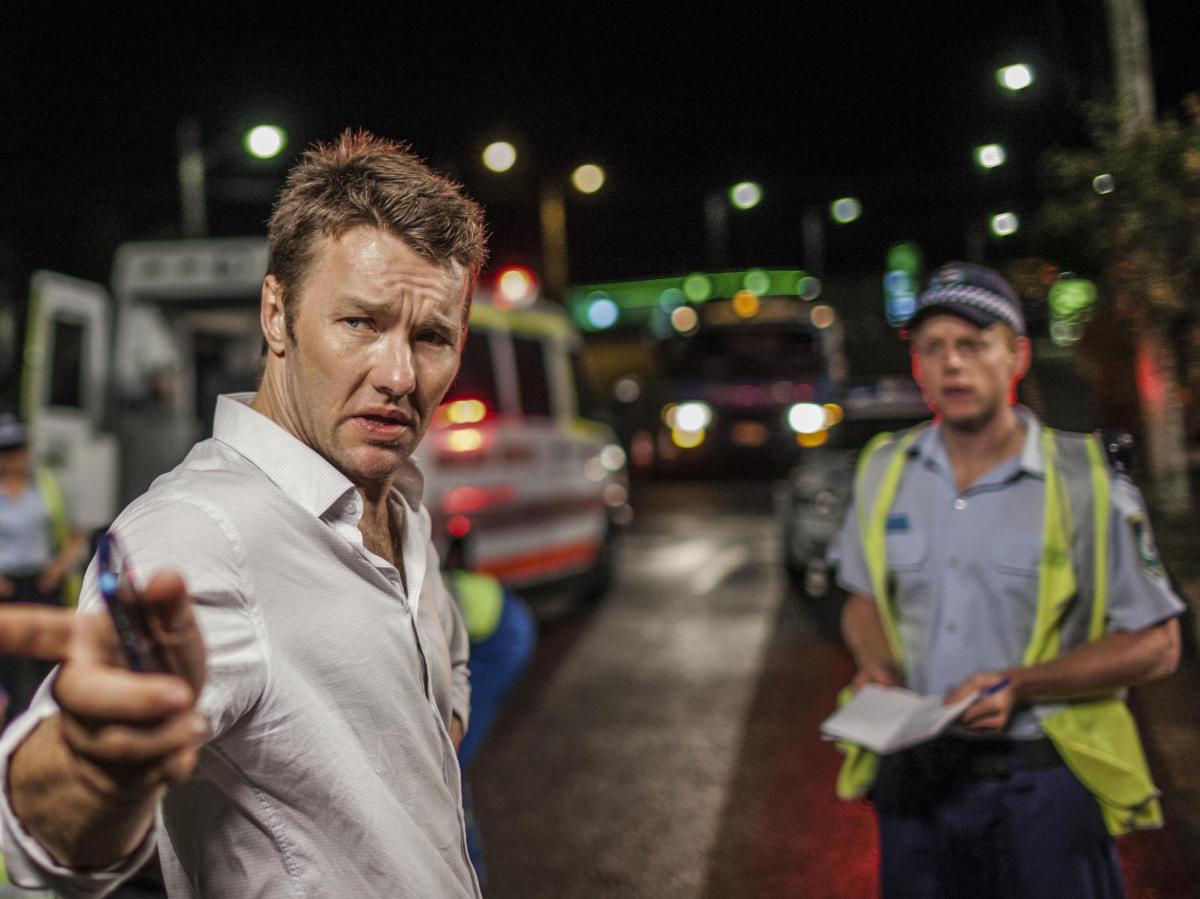A morality play sparked by a car accident and its resulting casualties; the concept is far from novel in cinema of late, spanning the likes of South Korean effort A Hard Day and Australian drama Fell. In treading familiar territory with Felony, director Matthew Saville (Noise) and writer and star Joel Edgerton (The Square) highlight the weight of guilt that bears down on those immersed in the aftermath. A trio of cops endeavour to cope with culpability, the repercussions on their careers and the cost of doing the right thing.
Mal Toohey (Edgerton, last seen in The Great Gatsby) sets events in motion, driving home from a few drinks with his colleagues after taking a bullet – and being saved by his protective vest – in the line of duty. He talks his way out of random breath testing, traversing the roads with care to avoid suspicion, but barely notices when he clips and knocks over a young boy delivering newspapers on his bike. Intoxicated yet with enough wits about him to avoid any admittance of guilt, Mal fudges the facts when reporting the incident. Two detectives – wizened veteran Carl Summer (Tom Wilkinson, The Grand Budapest Hotel) and eager rookie Jim Melic (Jai Courtney, Divergent) – become immersed in the investigation – the former happy to see matters laid to rest without a fuss, the latter certain that all is not what it seems.
That Felony’s narrative is anchored by withholding information as Mal tries to come to terms with his actions motivates the film’s style and structure, both of which unfold in the same fashion. Though the audience is gifted with perception beyond Jim’s search for the truth, Edgerton and Saville toy with the details wherever they can. Mal’s unreliability with setting things straight festers through his marriage to Julie (Melissa George, Between Us), the space between them simmering with the tension of all that is left unsaid. The film’s use of sound and perspective heightens the discord between what is known and what is hidden in all of the character’s interactions, the feature frequently asking the viewer to watch and intimate from afar.
Indeed, with Noise, Saville showed his mastery of selective storytelling and the sensory experience, and it is here that Felony excels. The basic aspects of the tale are as unremarkable as they are commonplace, with ample clichés leaned on and easy developments employed in what becomes a cross between an internal affairs stoush and a portrait of marital discord; it is how the movie builds them into a festering picture of unease through glances and aural dissonance that makes an impact. Alas, as events prove increasingly predictable, the momentum can’t be sustained throughout, especially when devolving into melodrama proves the movie’s final step. Good people make bad decisions, to be certain, and that quandary can make for compelling viewing, but great films maintain their tension without resorting to dramatic convenience.
Thankfully, interest also manifests in the three lead performances, particularly Courtney, building on previous fine work in Jack Reacher and even as the best element of the dire A Good Day to Die Hard. The dynamic he cultivates with the menacing Wilkinson perhaps best perfects the complexity the surrounding script aims for, and the give and take of their duelling detectives demonstrates the ethical questions at play, even if sometimes executed with the broadest of strokes. In fact, both leave Edgerton seeming muted albeit by necessity and on account of a lead role predicated on an internalised struggle, but quieter and with less of an impression made nonetheless. He is measured in a way the story abandons as it reaches its climax, and restrained in a manner that becomes too reliant on symbolism to make the film’s point known; in turn, Felony offers a competent but sometimes uncomfortable combination of aesthetic striving and thematic obviousness in its probing of which course of action is best in impossible circumstances.
Rating: 3 out of 5 starsFelony
Director: Matthew Saville
Australia / USA, 2013, 105 mins
Release date: August 28
Distributor: Roadshow
Rated: M
Melbourne International Film Festival
www.miff.com.au
31 July – 17 August
Actors:
Director:
Format:
Country:
Release:





